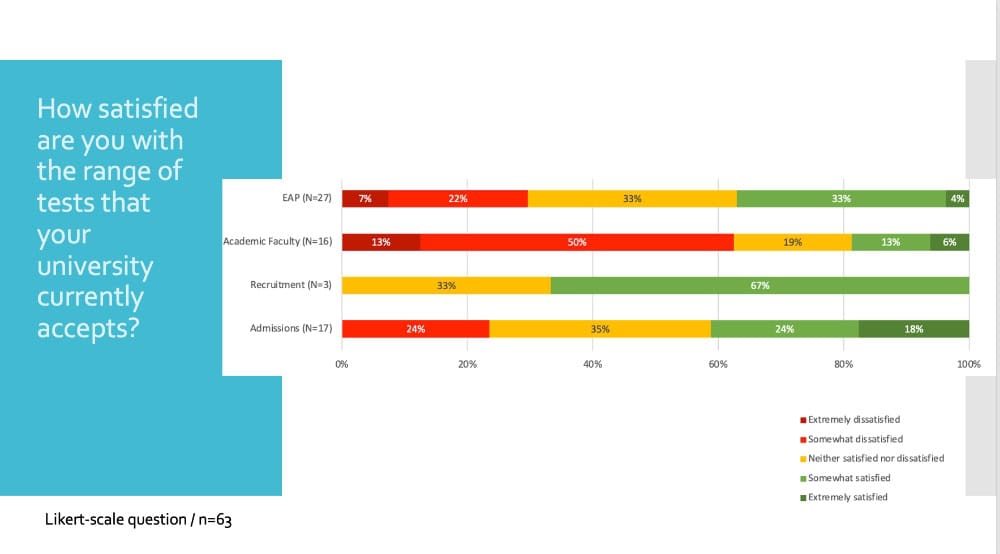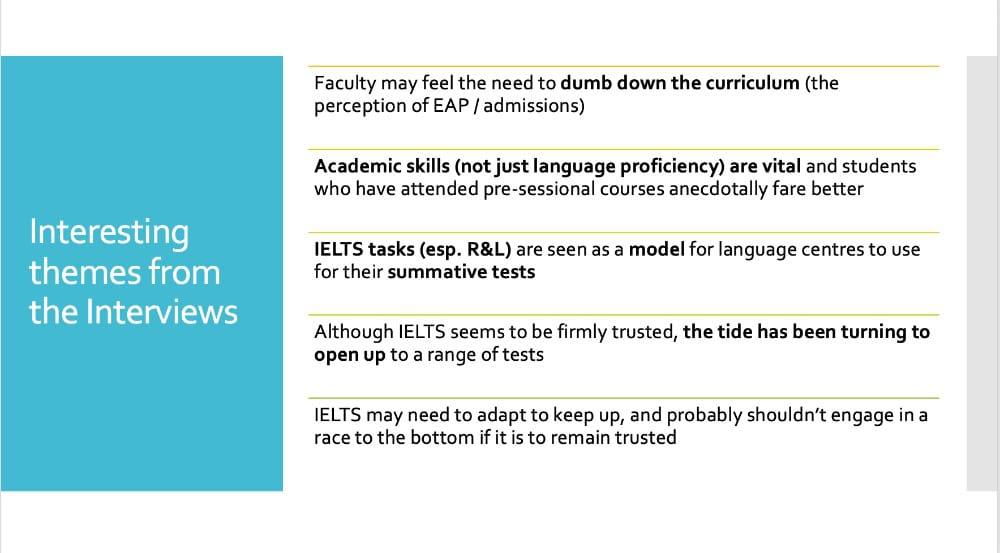Staff working in recruitment were the most likely to have a positive view of the range of English language tests on offer, according to researchers presenting their findings at IELTS’ open day at the British Council headquarters in London’s Stratford on July 16.
The project – a joint undertaking between the University of Cambridge, the University of Dundee and the British Council – involved interviews of a total of 63 university staff, including academic faculty, recruiters, people working in admissions and those working in English language support.
The preliminary findings found that while 67% of the three institutions’ recruitment staff surveyed said they were ‘somewhat satisfied’ by the range of English language tests their university accepted, just 13% of 16 academics felt the same way.
A further 50% said they were ‘somewhat dissatisfied’, whereas some 13% said they were ‘extremely dissatisfied’.

“You can see a bit of a divide between the groups. For example, academic faculty, quite a lot of people [are] not very happy with the tests… and then you contrast that with recruitment,” said Dr Tony Clark, head of IELTS research at Cambridge English.
The research identified other key themes, such as the difference between different English language competency tests, IELTS’ place in the market and the importance of tests looking at academic capability rather than just somebody’s grasp of language.
Clark cautioned delegates against pitting different ELT tests against one another, pointing out that they are not necessarily comparable.
“One thing we see happening a lot is score comparisons [between different tests],” he explained. “So if you’ve got this test, then this test [people think the scores are] equal. Be very careful because tests are very different.
“If you want to supplement the score table like that, look at the test constructs of the tests – what does it actually test?”
One common sentiment shared by EAP and admissions staff was the worry that faculty would feel the need to “dumb down” the curriculum to cater to students who didn’t always have a sufficient grasp of English, despite perhaps passing an English language test.

Sharing a slide highlighting recurring themes that came up during interviews with respondents, Clark pointed to this niggle in particular.
“The top one there is feeling the need to ‘dumb down’. And that worries me a little bit. Students that come to the UK, for example, for a high quality experience and dumbing anything down is a bit of a risky business,” he said.
Another key theme highlighted was that while institutions appear to trust IELTS’ offering, they are becoming more open to a range of providers.
“There is a range of tests out there that wasn’t there before. I don’t think that’s a bad thing. I think it’s probably a good thing, but we need to make sure it’s the right test. Otherwise I would worry quite a lot,” commented Clark.

